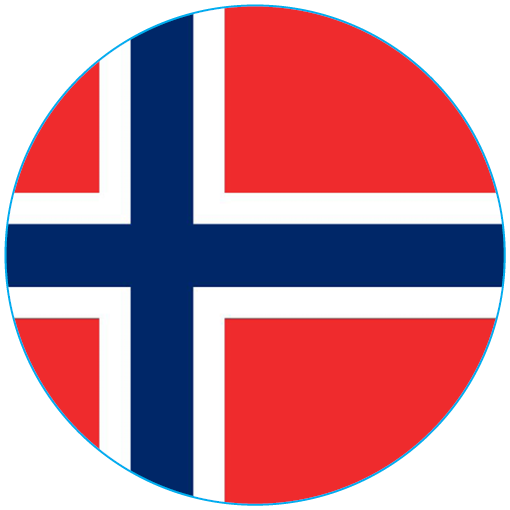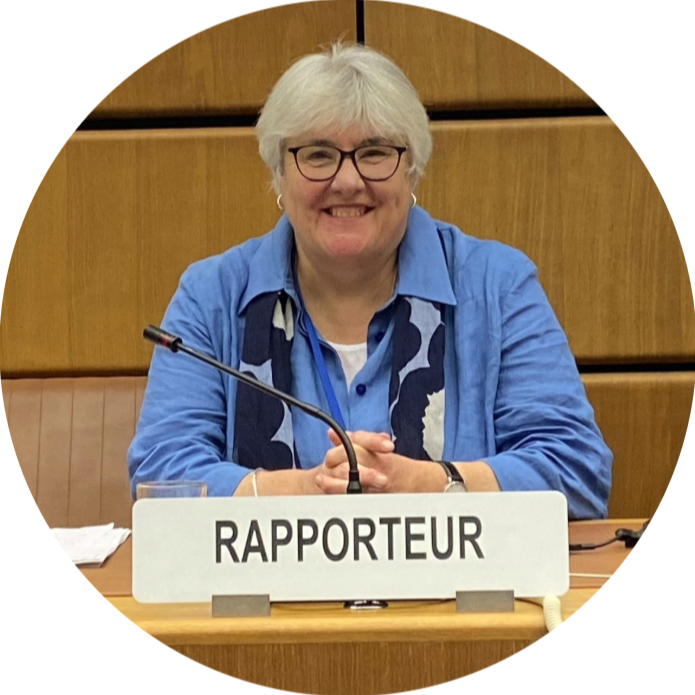

Ms. Carol Robinson has been working for the Norwegian Radiation and Nuclear Safety Authority (DSA) since 2018, where she is involved in the field of international cooperation.
Ms. Robinson holds a Bachelor of Arts (Hons) in Natural Science (Chemistry) from the University of Oxford, United Kingdom and a Master of Science in Occupational Hygiene from the London School of Hygiene and Topical Medicine.
Ms. Robinson began her career in 1986 with the National Radiological Protection Board in the United Kingdom, where she was involved in assessing exposure levels and risks to members of the public and in developing relevant guidance. In 1997, she joined the International Atomic Energy Agency where she was involved in the early development of international policies for protection of the environment from the effects of radiation. Her subsequent consultancy work involved the practical application of environmental impact assessment methods, and the provision of support to both international and national bodies on a range of issues related to dose and risk assessment, international standards, and national regulatory processes.
Ms. Robinson was a consultant to the Committee’s methodology for estimating public exposure from discharges, published in the UNSCEAR 2016 Report, annex A. Further, she was a contributing expert to the development of the UNSCEAR 2020 Report, annex B on the ‘Levels and effects of radiation exposure due to the accident at the Fukushima Daiichi Nuclear Power Station: implications of information published since the 2013 Report’ and is currently a lead writer contributing to the Committee’s evaluation of public exposure to ionizing radiation. Ms. Robinson serves as Rapporteur on the Bureau for the seventy-first and seventy-second session.
Ms. Robinson has been the alternate representative of Norway since the 69th session in 2022.

Deborah H. Oughtonis a professor in Nuclear Chemistry and Environmental Chemistry and the Director of the Centre for Environmental Radioactivity (CERAD) at the Norwegian University of Life Sciences. She is the deputy director of the Norwegian Nuclear Research Centre (NNRC) at the University of Oslo, and adjunct professor, where she teaches philosophy of science and research ethics to PhD students in the Faculty of Mathematics and Natural Sciences.
Prof. Oughton holds a PhD in nuclear chemistry from the University of Manchester, UK (1989), and she has worked on the human, environmental and societal impacts of ionising radiation for over 30 years. Her scientific research covers radiation protection, emergency preparedness and radiation biology. She has studied the ecological risks of ionizing radiation since 2000, including experimental studies on several organisms (earthworms, fish, mice). She researched extensively the social and ethical aspects of radiation risk, including the consequences of the accidents at the Chornobyl and Fukushima Daiichi nuclear power stations.
Prof. Oughton was a member of ICRP Committee 4, where she chaired the task group on Ethical Foundations of Radiation Protection from 2012-2014, and a member of the IAEA Working Group on Post-accident Recovery from 2013-2015, where she co-ordinated work on community revitalization and stakeholder engagement for The Fukushima Daiichi Accident report. She was a member of UNESCO’s World Commission on the Ethics of Scientific Knowledge and Technology (COMEST) from 2014 to 2022, and is currently a member of the All European Academies (ALLEA) Permanent Working Group on Science and Ethics.
Prof. Oughton is the alternate representative of Norway since the 71st session in 2024.